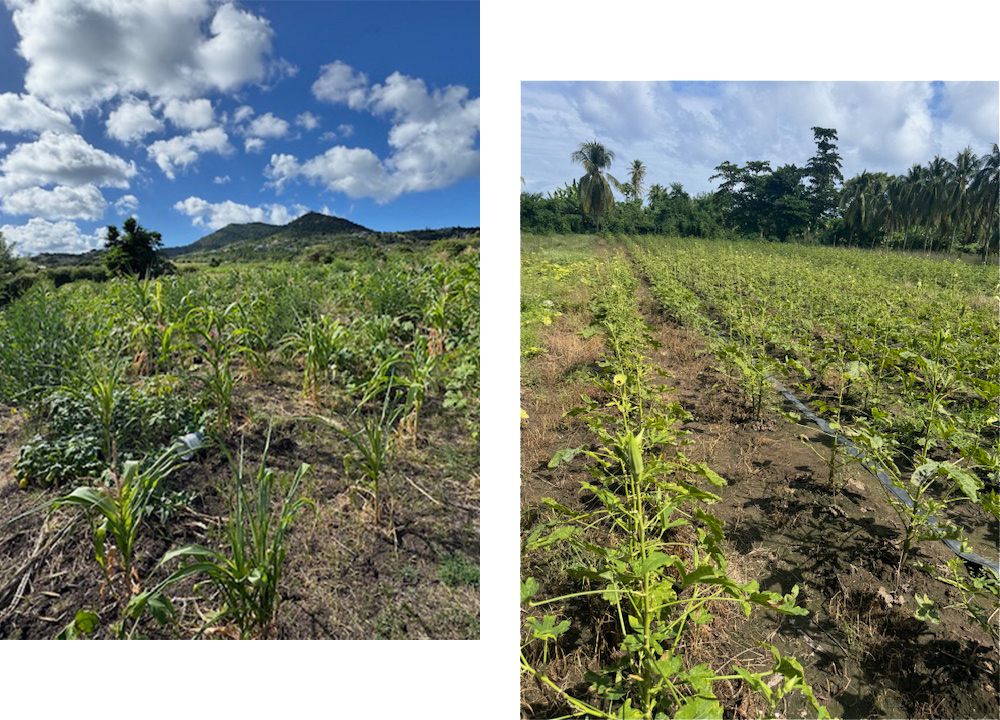
This project is supported by the Green Climate Fund -GCF- Readiness Programme. The development of the Climate Risk Atlas is intended to “to reduce the impact of climate change on food security in Grenada by strengthening the generation, management, dissemination and building capacities for the use of critical information to accelerate adaptation action in Grenada’s agriculture and fisheries sector” (GCP/GRN/005/GCR, “National Adaptation Planning for Improved Food Security in Grenada” ). The Climate Risk Atlas is based on sound, scientific hazard and vulnerability analysis and mapping of communities/parishes in Grenada, Carriacou and Petite Martinique. It identifies the hazards, elements at risk and projected impacts of the hazards for Grenada’s food security under specific climate scenarios.
While Grenada's agricultural sector has traditionally focused on export-oriented crops like nutmeg, cocoa, and bananas, the cultivation of other food crops remains vital for domestic food security and nutrition. Root and tuber crops, fruits, vegetables, cereals, and legumes play significant roles in the local diet and support rural livelihoods. These crops are primarily cultivated by smallholder farmers and are essential for local consumption.
Despite their importance, comprehensive production data for these crops are scarce, highlighting the need for improved agricultural data collection and reporting mechanisms.
The Climate Atlas aims to guide decision-makers, including government agencies and NGOs, in planning climate adaptation strategies, especially for agriculture and food systems.

